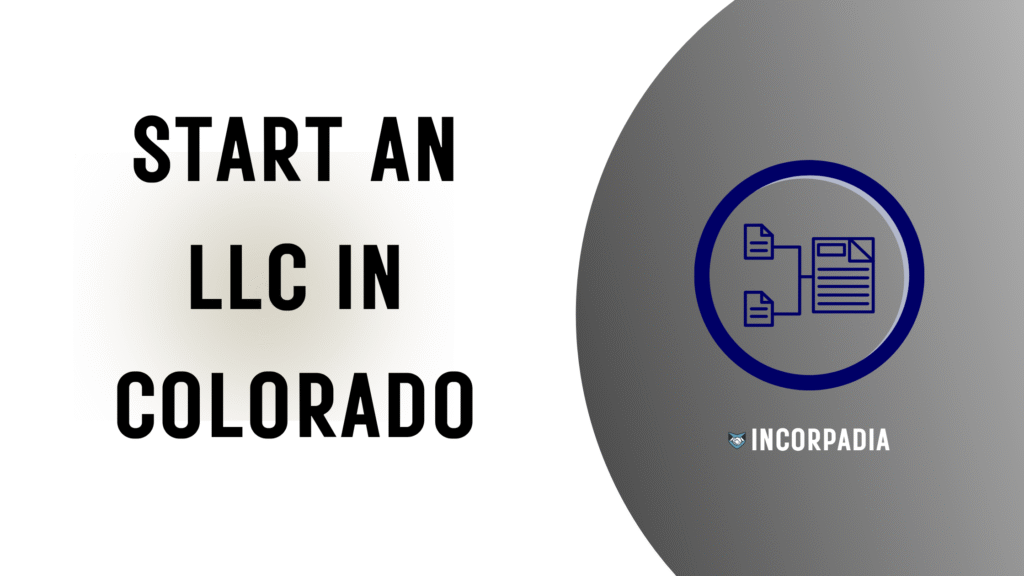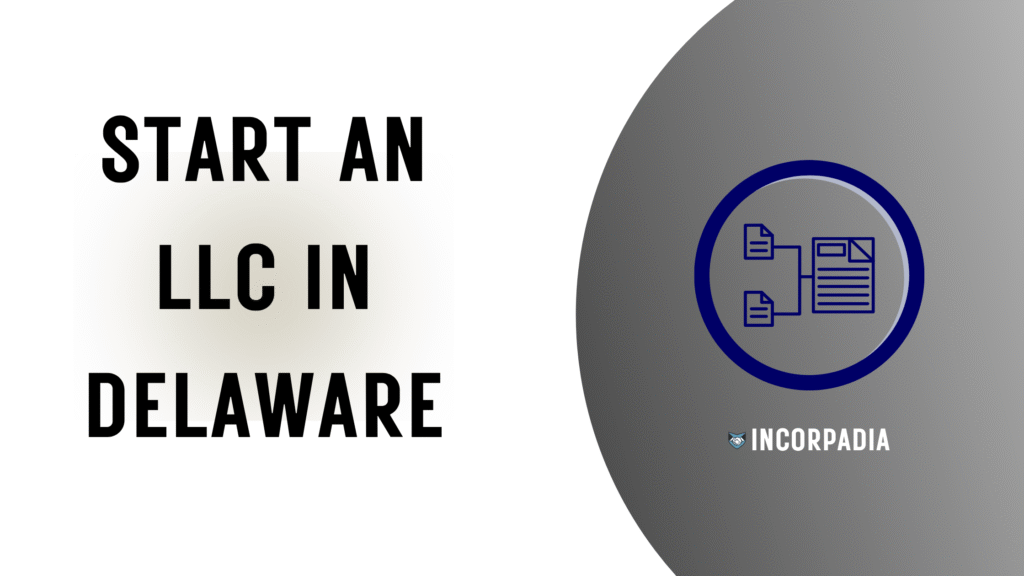Starting a business can be both exciting and overwhelming, especially when it comes to choosing the right legal structure. In Colorado, forming a Limited Liability Company (LLC) is one of the most popular and advantageous options for entrepreneurs. An LLC offers flexibility, personal asset protection, and various tax benefits, making it ideal for small business owners, freelancers, and even larger enterprises.
In simple terms, an LLC protects your personal assets from business liabilities. If your LLC faces a lawsuit or financial issues, your personal property (like your home or car) is typically shielded. It’s a significant advantage over a sole proprietorship or partnership, where your personal assets are at risk.
The process to form an LLC in Colorado is relatively easy compared to other states, and with a few basic steps, you can have your LLC up and running. Whether you’re starting a side business or scaling up an existing one, the steps are clear and accessible.
This guide will take you step-by-step through the process of forming your LLC in Colorado, from picking a business name to filing necessary documents and complying with state requirements. It’s designed to help you understand each step without the confusion, ensuring you can quickly move forward with your business.
Whether you’re a first-time entrepreneur or an experienced business owner, this guide will equip you with the knowledge you need to successfully start your LLC in Colorado in 2025.
Steps for starting an LLC in Colorado
Starting an LLC in Colorado is a straightforward process that provides liability protection, tax flexibility, and the ability to grow your business. By following the necessary steps, you can legally form your LLC, protect your personal assets, and ensure compliance with both state and federal regulations. Here’s how to get started:
1. Search Your Limited Liability Company Name
The first thing you’ll need to do when starting your LLC in Colorado is to choose a unique name. Your LLC’s name must comply with state rules and be distinguishable from the names of other businesses already registered in Colorado.
Key requirements for your LLC’s name:
- The name must include “Limited Liability Company,” “LLC,” or “L.L.C.”
- It cannot contain words that could confuse your LLC with a government agency (e.g., “FBI,” “Treasury”).
- Your name must be distinguishable from other registered LLCs, corporations, or trade names in Colorado.
How to check name availability:
Before filing your Articles of Organization, you must confirm that your LLC name is available. You can search for existing business names using the Colorado Secretary of State’s business database. If the name is available, you can proceed. If it’s already taken, you’ll need to choose a different name.
Reserving your name:
If you want to reserve your LLC name for up to 120 days before filing your formation documents, you can file a “Statement of Reservation of Name” form with the Colorado Secretary of State. There is a $25 fee for reserving a name.
2. Choose a Colorado Registered Agent
In Colorado, as in other states, every LLC must have a registered agent. A registered agent is an individual or business entity that is authorized to receive legal documents, government notices, and service of process on behalf of your LLC.
Who can be your registered agent?
Your registered agent must meet the following criteria:
- Be a resident of Colorado or a business entity authorized to operate in Colorado.
- Have a physical address in Colorado (P.O. Boxes are not allowed).
- Be available during normal business hours to receive documents.
You can choose to act as your own registered agent if you have a physical address in Colorado, or you can hire a professional registered agent service to take care of this responsibility. If you decide to go with a professional service, it’s important to choose a reputable provider. Some services offer extra features, like privacy protection and document scanning, which can be very helpful for business owners who want to maintain a low profile.
3. File Articles of Organization
Once you have your LLC name and registered agent in place, the next step is to officially create your LLC by filing Articles of Organization with the Colorado Secretary of State.
What’s in the Articles of Organization?
This document includes basic information about your LLC, such as:
- The name of the LLC
- The LLC’s principal address (the main office where your business operates)
- The name and address of your registered agent
- Whether your LLC will be managed by its members (owners) or managers
- The names and addresses of the LLC’s organizers
How to file the Articles of Organization:
The easiest way to file is online through the Colorado Secretary of State’s website. The filing fee is $50. When you file online, approval is typically immediate, and your LLC is officially formed once the Secretary of State accepts your filing.
4. Create an LLC Operating Agreement
Though not legally required in Colorado, creating an LLC Operating Agreement is strongly recommended. This internal document outlines the rules for how your LLC will operate, the roles of members or managers, and how decisions will be made.
What to include in an Operating Agreement:
- The percentage of ownership each member holds in the LLC
- How profits and losses will be allocated
- The roles and responsibilities of each member or manager
- Procedures for adding or removing members
- How to handle disputes among members
- What happens if the LLC is dissolved
An Operating Agreement helps to clarify the rules governing your LLC, reducing the risk of misunderstandings or disputes later. Even if you’re the only member of the LLC, it’s still a good idea to have an operating agreement to outline the structure and operations of your business.
5. Get an EIN for Your LLC
After your LLC is formed, you’ll need to apply for an Employer Identification Number (EIN) from the IRS. An EIN is like a Social Security number for your LLC, and it’s required for a number of purposes, including:
- Opening a business bank account
- Hiring employees
- Filing taxes
The good news is that obtaining an EIN is free and easy. You can apply for one directly through the IRS website. The process is entirely online and typically takes just a few minutes. Once your EIN is issued, you’ll receive a confirmation letter from the IRS, and you’ll be ready to move forward with setting up your business.
What do I do after my LLC is approved in Colorado?
After your LLC has been officially formed, there are a few steps you need to take to ensure that your business is fully compliant with state and federal requirements.
Open a Business Bank Account
As a new LLC owner, one of the first things you should do is open a business bank account. Keeping your personal and business finances separate is critical for maintaining your LLC’s limited liability protection. To open an account, you will generally need to provide:
- A copy of your Articles of Organization
- Your EIN
- An operating agreement (if applicable)
File Your Colorado Periodic Report
Colorado requires all LLCs to file a Periodic Report annually with the Secretary of State. The report is due in the anniversary month of your LLC’s formation. The filing fee is $25, and the report is filed online.
Failing to file your Periodic Report on time can result in your LLC being administratively dissolved, so be sure to file it every year to maintain good standing.
Comply with State and Local Licensing Requirements
Depending on the type of business you’re running and where it’s located, you may need to obtain additional licenses or permits. These can include:
- Local business licenses (required in many Colorado cities and counties)
- State-specific industry licenses (e.g., for contractors, medical professionals, or food establishments)
Check with your local city or county government and the Colorado Department of Regulatory Agencies (DORA) to ensure that you have all the necessary licenses.
Understand Your LLC’s Tax Obligations
LLCs in Colorado are subject to state taxes, but there are some specific rules depending on the structure of your LLC and the type of business you’re running. Here’s an overview of the key taxes you’ll need to be aware of:
- State Income Tax: Colorado imposes a flat income tax rate on all LLC income. For most LLCs, income passes through to the individual members, who report it on their personal tax returns.
- Sales Tax: If your LLC sells tangible goods or certain types of services, you’ll need to collect sales tax from customers and remit it to the Colorado Department of Revenue.
- Self-Employment Tax: Members of an LLC are generally considered self-employed and must pay self-employment tax on their share of the LLC’s profits.
Be sure to consult with a tax professional to fully understand your LLC’s tax obligations and make sure you’re in compliance with state and federal tax laws.
How will my LLC be taxed?
LLCs are generally considered “pass-through” entities for tax purposes, meaning the profits and losses of the LLC are passed through to its members. Members report their share of the LLC’s income on their personal tax returns, avoiding the double taxation that corporations face.
However, LLCs have flexibility in how they are taxed. You can elect to have your LLC taxed as:
- A sole proprietorship (for single-member LLCs)
- A partnership (for multi-member LLCs)
- An S Corporation or C Corporation (by filing IRS Form 2553 for S Corp status or by defaulting to corporate taxation)
The choice of tax classification affects how you pay taxes, how much you pay, and how you report income. Be sure to talk to a tax professional to determine the best structure for your LLC.
Final Thoughts
Starting an LLC in Colorado is a straightforward and beneficial process for any entrepreneur looking to protect their personal assets while growing their business. The state offers a streamlined process with clear steps, making it accessible for both first-time business owners and experienced entrepreneurs. From selecting your LLC name to filing necessary documents and understanding tax obligations, the steps are simple, and many can be completed online.
The biggest advantage of forming an LLC is the personal liability protection it provides. As an LLC owner, your personal assets—such as your home or personal savings—are generally shielded from the debts and liabilities of your business. This makes it a secure and wise choice, especially if you’re entering a high-risk industry or have significant personal assets you want to protect.
Moreover, Colorado offers flexibility in how your LLC is taxed, and it’s relatively easy to register your LLC and meet ongoing compliance requirements. The annual Periodic Report and low fees make maintaining an LLC affordable for most small business owners.
One of the most important considerations when forming an LLC is ensuring that you follow all required steps—checking name availability, appointing a registered agent, and filing the necessary documents. Additionally, having an Operating Agreement, while not required by law, can save you from potential disputes and provide a clear structure for your business.
Starting an LLC in Colorado is a smart move for those looking to establish a solid legal foundation for their business. By following this guide and taking the right steps, you can confidently start your LLC and set your business up for long-term success. Keep these tips in mind, stay organized, and enjoy the benefits of running your own business in the Centennial State!
FAQs
How long does it take to form an LLC in Colorado?
Online filings are typically processed immediately, meaning your LLC can be officially formed within minutes.
Can I be my own registered agent?
Yes, you can serve as your own registered agent as long as you have a physical address in Colorado and are available during business hours to receive legal documents.
What is the annual fee for an LLC in Colorado?
The annual filing fee for the Periodic Report is $25. This is the only ongoing fee required to maintain your LLC in Colorado.
Do I need an attorney to form an LLC in Colorado?
You don’t need an attorney to form an LLC in Colorado, but having one can be helpful if your business has complex needs or if you want extra assurance that everything is set up correctly.







